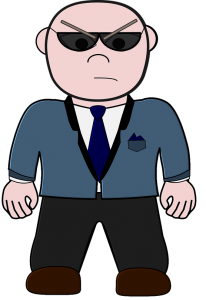The Cost of a Wrong Hire and how to do it Right
Are you ready to lose hundreds of productive hours and thousands of dollars? I thought not. Unfortunately, hiring the wrong person is estimated to cost at least 30% of the employee’s first-year earnings and that’s just the tip of the iceberg.
“When you add up missed sales opportunities, strained client and employee relations, potential legal issues, and resources to hire and train candidates, the cost can be considerable,” says CareerBuilder CEO Matt Ferguson.
As the saying goes, one bad apple can spoil the bunch, and this couldn’t be truer than in the workplace. Company culture can quickly be poisoned by negative attitudes or even just disengagement. Both tend to spread quickly. Although some employees stay strong and seem immune, they can become frustrated or burned out trying to make up for the poor performance of others. As a result, some key employees may decide their talents are better spent elsewhere.
While there may be no sure-fire way to guarantee a successful hire, there are some best practices which will up your odds of hiring the right person for the job.
- Provide a detailed job description – If the candidate isn’t aware of the full responsibilities of the job, they may end up in a position that’s out of their comfort zone, let alone their skill set. This could lead to frustration and poor performance.
- Research the candidate before the interview – Have a look at their LinkedIn page (that’s what it’s there for) to see if they have the necessary experience. Where have they worked in the past? Find out about that company. What titles have they held? Do they have connections to other professionals in the industry?
- Ask the right questions – Be sure to ask open-ended questions which allow for the candidate to showcase past situations where they’ve put their skills to use and how they relate to the position. There’s a great list of questions to ask on thebalance.www.thebalance.com to get you started.
- Think about company culture – Culture is defined as the values, practices, and beliefs shared by the members of a group. Will this candidate be a good fit? Feeling like a part of the group is the first step to success.

- Check references – Make the person offering the reference was in a position of authority over the candidate. A co-worker or team member may have a very different perspective than a supervisor and most likely won’t be able to answer all of your questions. Checking references should go beyond the typical questions like “What was the candidate’s greatest strength?”. Try questions like: How did s/he support co-workers? What was their biggest accomplishment while working for your company? What do you think the candidate needs to really continue his or her career development and professional growth?
With due diligence (and a little luck) you’ll be able to offer the position to the right candidate, add an amazing person to your team and avoid those costly hiring mistakes.

muniSERV is Canada’s leading online solution for helping municipalities and professionals connect. We help municipalities save time and money searching for the consultants & CAOs they need while offering professionals the opportunity to showcase their profile and services to get found and grow their business.








